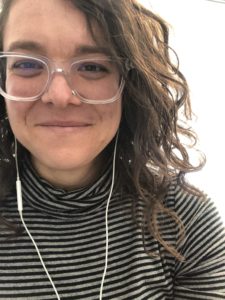
Life Don’t Stop (My Cat Died)
A few weeks ago, I had to put down my cat of 14 years. She was very sick and there were no roads to recovery. Her name was Regan. I got her my first year of graduate school, when I had just started at the University of Virginia, and I was living in a basement apartment, in a not-so-safe part of town, on my own for the first time. I was in a doctoral program with a bunch of older, married men, and I was lonely. Regan was my first friend in Charlottesville. If you’ve ever had a pet die—or had to make the decision to end their life—you’ll know the grief and guilt that I felt, feel still.
We’re in the middle of a “triple” pandemic, which I’ve watched killing hundreds of thousands of people and disproportionately affecting those who are already most vulnerable, and I’m also sad about my cat.
On its own, Covid-19 is causing all sorts of problems—and not just sickness and death. People are suffering from mental health issues, such as anxiety and depression; job loss; homelessness and food scarcity; domestic violence; racial discrimination; you name it. But it’s not just that. We’re also all still experiencing whatever life would normally be throwing at us.
Come fall, students will still be stressing out about projects and exams, still wanting to rush, still eating leftover pizza, still hooking up, still doing research, still missing their parents, still working out, still cracking jokes, still procrastinating, still singing in the shower, still praying, still volunteering, still playing ultimate Frisbee, still skipping class, still applying for jobs, still requesting accommodations, still sleeping in, still ending relationships, still feeling proud about their grades, still starting their own businesses, still asking for recommendation letters, still fighting with friends, still protesting, still driving with the windows down, still getting accepted into grad school, still cheating, still feeling like they don’t belong, still reading the news, still trying to earn money, still drinking, still shaving—still living, that is.
And my life continues too. I’m still a mom. I still want to write and do research. I still want to support and uplift my colleagues. I’ve still got to create an online course for the fall. I have books to read, a stack of New Yorkers to finish. (One of my favorite bits on the show The Good Place is a conception of hell as “nothing but a growing stack of New Yorker magazines that will never be read.” I laughed a little too hard at this joke.) Dishes need to be washed, laundry needs to be folded, rent needs to be paid. My house could use a good dusting. I found out yesterday that I can go up early for promotion; there are a lot of forms to fill out, y’all! It’s my friend’s birthday today, I got the oil changed in my car this morning, and I have reservations at the local pool later on, if an afternoon thunderstorm doesn’t pass through. I wake up too early, I eat heirloom tomatoes with a shake of salt, and I don’t always put enough sunscreen on. I’m grateful, I’m cranky, I’m hormonal, I’m excited, I’m overwhelmed, I’m angry, I’m weary, I’m . . . . This is life, my life. And it’s, inexplicably, somehow, still going, amidst everything else.
There will be some big stories in the fall—the pandemic, the presidential election, the Black Lives Matter protests, the federal arrests that are starting to seem more like kidnappings—and we must attend to them. They are devastating, deep rooted. We must not look away—or allow our students to look away. We can teach to these big stories, we can support one another through them. But our students will not stop having everyday concerns, needs, questions, and experiences, those seemingly “small” stories. We must allow for them too. After all, they will affect, as they always have, how our students learn, how motivated they are, how much time and energy they can or want to give to any academic pursuits, how they interact with us and their peers. We must hold the mundane and the massive together, in tension.
For years now, I’ve kept a note in my wallet that my aunt wrote for me, for one of my graduations, I think it was. It’s frayed and faded, a quotation by author Grace Paley. I pulled it out recently, when I was grappling with the loss of my long-time feline companion . . . and so much more: “Well, by now you must know yourself, honey, whatever you do, life don’t stop. It only sits a minute and dreams a dream.”
Life sure don’t stop. Not for us and not for our students. We must remember this, come fall.
Thanks to Andreas Broscheid for offering important feedback to earlier drafts of this blog post.
nice thought and article